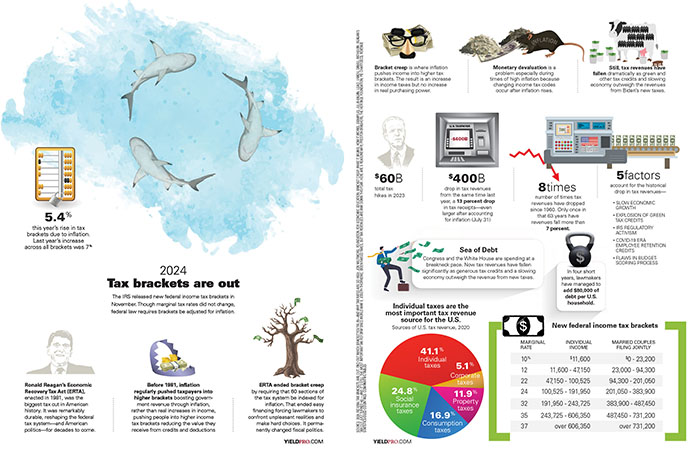For forty years, the multihousing industry has been a proactive agent of fair housing law. After all, it was charged with a lead roll in making this significant change in the American landscape. Nationally and locally, apartment owners and managers have, for the most part, accepted responsibility, even exceeding minimal legal requirements, to create a rental housing nation nearly void of overt discrimination.
The industry has long managed its imaging and ad placements; hired attorneys and trainers to assure that every possible interpretation of the law was met, and set a model of good behavior.
Fair housing not only makes sense for our nation, but for our industry. Uniform enforcement of the law protects owners and residents, alike.
Explicit illegal discrimination, however, has, again, seen the light of day. Not from the multihousing industry, but from the Internet; specifically, one rather vociferous Internet Listing Service (ILS) based in San Francisco.
Solicitation for renters on the basis of every one of the seven protected classes has been published on their site, as well as other legal snares such as bartering rent for sex. The rationale for their overt disregard for the law? They don’t employ enough staff to monitor the apartment ads posted. They advocate fair housing compliance by encouraging their users determine which ads are illegal and report them to the site administrators. And, finally, they are simply exempt from the law because their classified ads are published electronically rather than on paper.
These arguments are at the heart of the Craigslist’s defense to a fair housing lawsuit brought by The Chicago Lawyers Committee for Civil Rights Under Law. Craigslist’s posted response to the suit (www.craigslist.com/about/fair.housing.html) states in part:
Putting aside the fact that Craigslist legally can not be held liable in this suit, we feel very strongly that the Craigslist community of users is on the very highest moral high ground with respect to fair housing, setting an example more worthy of emulation than litigation.
No. This is not a 50-year-old quote from an old Southern politician. It’s from Jim Buckmaster, the CEO of Craigslist, presently on their site.
In discerning who’s running the Craiglist shop, and most of all, how could they possibly place the company in the path of an oncoming freight train, such as fair housing law, it’s important to note that not only does the Herculean giant, eBay own 25 percent of the company, but Meg Whitman sits on its Board of Directors.
And speaking of eBay, how does their company, Rent.com step up to the issue of fair housing law with regard to its listings? The soft step approach may be more agreeable, but not necessarily legally prudent. Ebay’s Rent.com fair housing statement (rent.com/company/legal/equal) presents an correlative argument in that fair housing law is for someone else: namely, community owners and managers.
Let’s run a quick review of how The Fair Housing Act specifically includes publishers of housing ads within its pervue:
U.S Code Chapter 45, Fair Housing, subchapter I, Section 3604. Discrimination in the sale or rental of housing and other prohibited practices. c. To make, print, or publish, or cause to be made, printed, or published any notice, statement, or advertisement, with respect to the sale or rental of a dwelling that indicates any preference, limitation, or discrimination based on race, color, religion, sex, handicap, familial status, or national origin, or an intention to make any such preference, limitation, or discrimination.
Most publications take a proactive stance on fair housing. The Washington Post, for example, includes the following with all of its housing ads both printed and online:
All advertisements for the sale or rental of dwelling units published in The Washington Post are subject to the federal Fair Housing Act, which makes it illegal to advertise “any preference, limitation, or discrimination because of race, color, religion, sex, handicap, familial status or national origin, or intention to make such preference, limitation, or discrimination.” State law forbids discrimination based on factors in addition to those protected under federal law.
The Washington Post will not knowingly accept any advertising for real estate which is in violation of the law. All persons are hereby informed that all dwellings advertised are available on an equal opportunity basis.
Note two keys items: 1. All advertisements published in the Washington Post are subject to the federal Fair Housing Act, and 2. The Washington Post will not knowingly accept any advertising… in violation of the law.”
Ebay’s Rent.com, however, attempts to transfer the burden squarely and solely to property owners and managers:
Property owners and managers are subject to the federal Fair Housing Act, which prohibits “any preference, limitation, or discrimination because of race, color, religion, sex, handicap, familial status, or national origin, or intention to make such preference, limitation or discrimination.
Rent.com supports Equal Housing Opportunity and we encourage users of our site to follow appropriate guidelines to comply with both the Federal Housing Act, as well as any applicable state and local regulations. All renters are hereby informed that all property rental offers are available on an equal opportunity basis.
From this statement, the inference is that Rent.com does not consider advertising on its site subject to the Fair Housing Act, and merely encourages users to comply.
Ebay’s Rent.com appears to regard everyone responsible, just not them.
Craigslist is clearly relying upon Title 47, Chapter 5, Subchapter II, Part I, Section 230 of the United States code, also known as the Communications Decency Act which states in part:
1. Treatment of publisher or speaker. No provider or user of an interactive computer service shall be treated as the publisher or speaker of any information provided by another information content provider.
Craigslist asserts that it is nothing more than a message board facilitating the free exchange of information. While this may, on the surface, sound like a plausible argument for craigslist, rent.com is legally a real estate broker (as it accepts commissions for leasing services) in most jurisdictions and therefore falls under the fair housing act as a broker.
While the Craigslist position is the same as Roommates.com used to win a dismissal in a similar case, they are dissimilar beyond the fact that they are both Internet companies.
Roomates.com is a matching service for people inhabiting the same rental unit. It used a questionnaire similar to a dating service to find compatible people who would co-rent housing. Roomates.com was never a target of the fair housing law, but the housing units for sale and rent on craigslist clearly are.
The tension between the Communications Decency Act and the Fair Housing Act is a conflict of law. Often times legislature will resolve such conflicts when they next touch either piece of law. More likely the matter will be litigated.
While the legal issues wind there way through the courts, the societal issues remain. Should online commerce truly be exempt from fair housing law?















